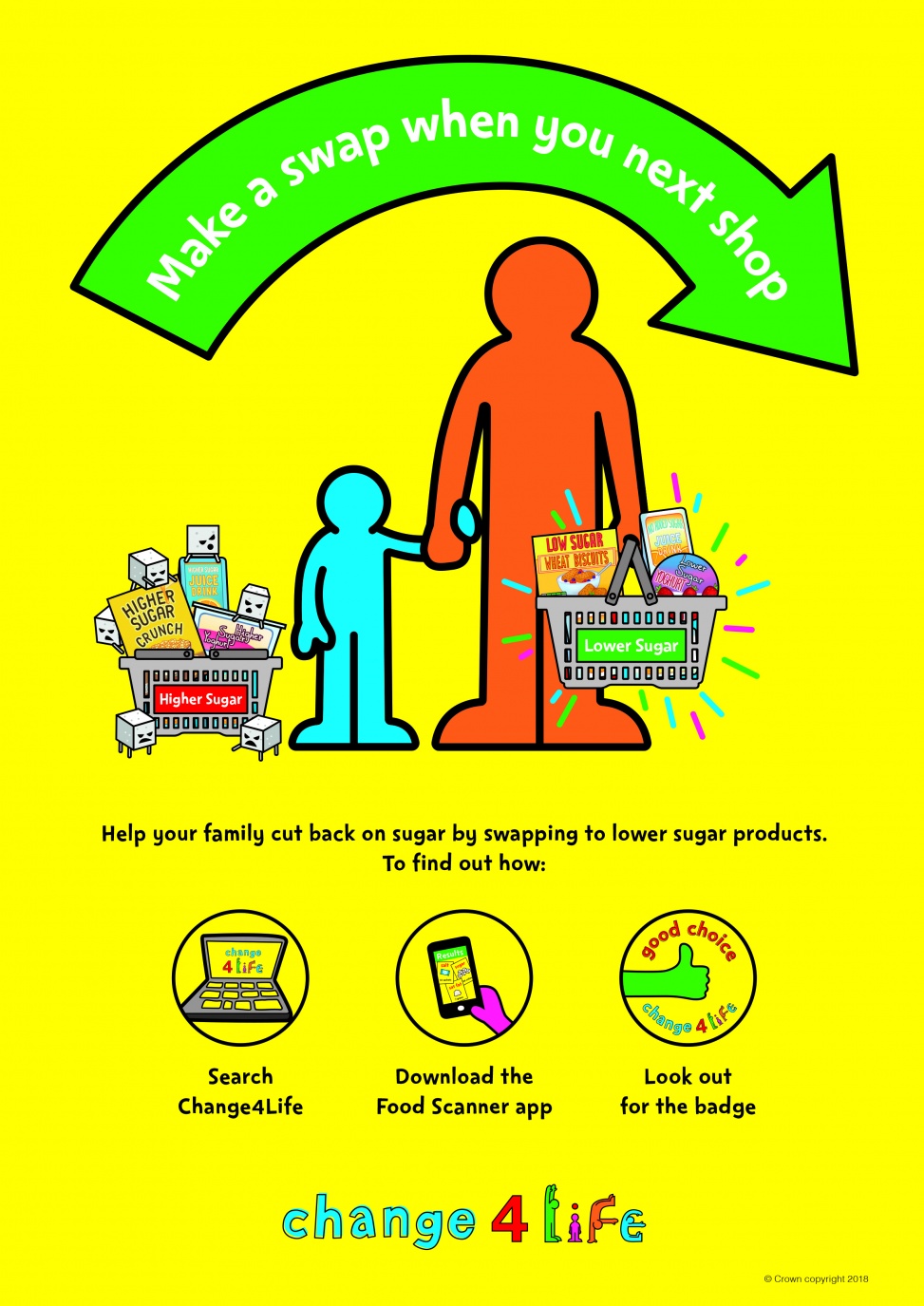- The latest Change4Life campaign is encouraging parents to “Make a swap when you next shop” to halve their children’s sugar intake from some everyday food and drinks.
- Children are currently consuming around 2,800 extra sugar cubes per year.

The latest data shows that Black African, Black Caribbean, and other Black children aged 10 and 11 years old are most likely to be overweight (46.2%, 45.4% and 43.9%, respectively) This figure comes as a new strand of the Change4Life campaign launches which aims to support Black families to cut back on sugar and to help tackle growing rates of childhood obesity.
Children have already exceeded the maximum recommended sugar intake for an 18 year old by the time they reach their tenth birthday, according to Public Health England (PHE).
To help parents manage this, Change4Life is encouraging them to “Make a swap when you next shop”. Making simple everyday swaps can reduce children’s sugar intake from some products (yoghurts, drinks and breakfast cereals) by half – while giving them healthier versions of the foods and drinks they enjoy. Parents can try swapping:
- a sugary juice drink for a no-added sugar juice drink, to cut back from 2 cubes to half a cube;
- a higher-sugar breakfast cereal (e.g. a frosted or chocolate cereal) for a lower sugar cereal, to cut back from 3 cubes to half a cube per bowl;
- a higher-sugar yoghurt (e.g. split-pot) for a lower sugar one, to halve their sugar intake from 6 cubes of sugar to 3.
While some foods and drinks remain high in sugar, many companies have reformulated products such as yoghurts, breakfast cereals and juice drinks, meaning these swaps are a good place for families to start.
Making these swaps every day could remove around 2,500 sugar cubes per year from a child’s diet, but swapping chocolate, puddings, sweets, cakes and pastries for healthier options such as malt loaf, sugar-free jellies, lower-sugar custards and rice puddings would reduce their intake even more.
 Orla Hugueniot, Campaigns Nutritionist at PHE, said: “Children are consuming too much sugar, but parents can take action now to prevent this building up over the years.
Orla Hugueniot, Campaigns Nutritionist at PHE, said: “Children are consuming too much sugar, but parents can take action now to prevent this building up over the years.
Severe obesity in ten-to-eleven year olds has now reached an all-time high. Overweight or obese children are more likely to be overweight or obese as adults, increasing their risk of heart disease and some cancers, while more people than ever are developing Type 2 diabetes. Overweight or obese children are more likely to be bullied and have low self-esteem. Excess sugar can also lead to painful tooth decay,”
Dietitian Shola Oladipo, Food for Purpose, said: “We need to understand the sugar content in popular cultural foods and make changes as a community to address the problem of obesity in our children. To make this easier for busy families, Change4Life is offering a straightforward solution – by making simple swaps each day, children can have healthier versions of everyday foods and drinks, while significantly reducing their sugar intake.
“The Change4Life campaign will also be taking this message to the heart of the community in churches and mosques, reaching grandparents as well as parents as we recognise that they can play a significant role in their grandchildren’s diet and so the need for change has to come from the whole family.”
Families are encouraged to look for the Change4Life ‘Good Choice’ badge in shops, download the free Food Scanner app or search Change4Life to help them find lower sugar options.
Watch the Change4Life TV campaign here https://www.youtube.com/watch?v=PWE_UMno5P8
Kindly follow us on twitter:@AfricanVoice2









